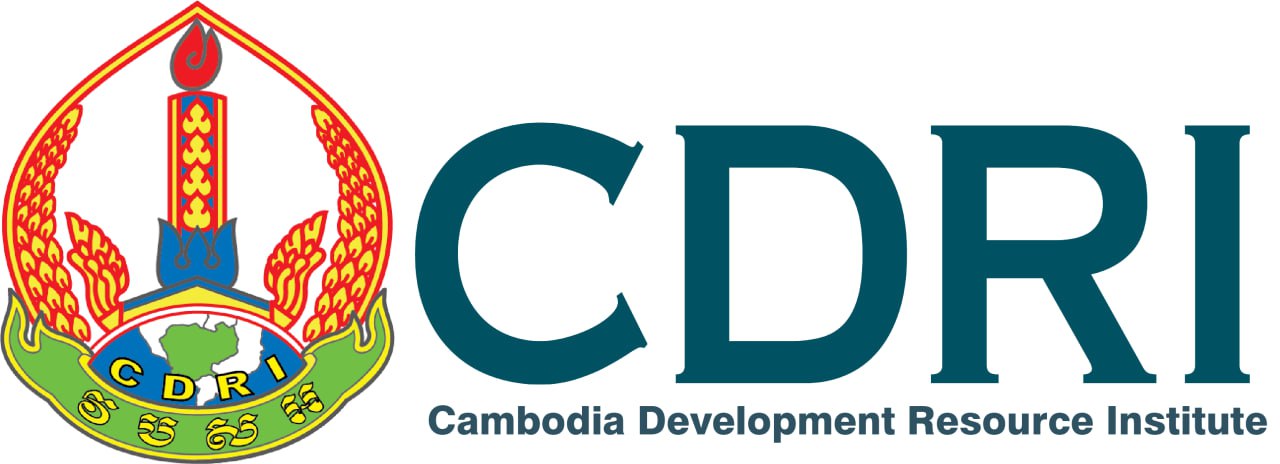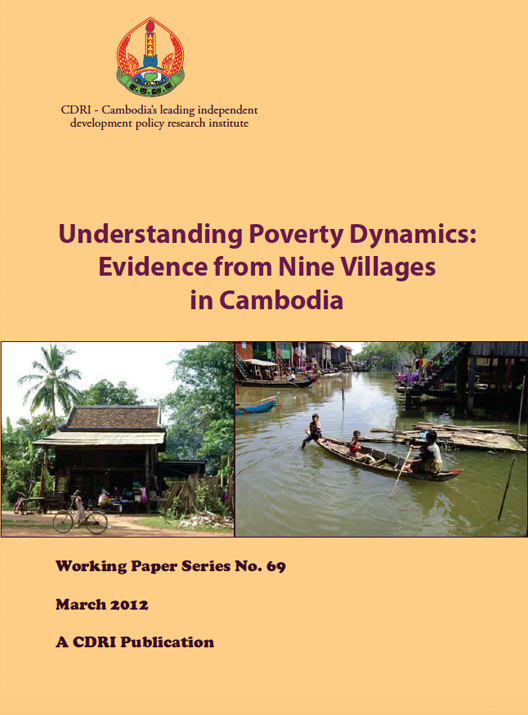
Understanding Poverty Dynamics: Evidence from Nine Villages in Cambodia
Poverty in Cambodia is one of the highest in Asia. Despite the country’s very impressive GDP growth in the last decade or so, poverty remains pervasive specifically in the rural areas. The food and economic crises along with the idiosyncratic shocks of the recent years put the plight of the poor and near-poor at even greater risk. The Poverty D...
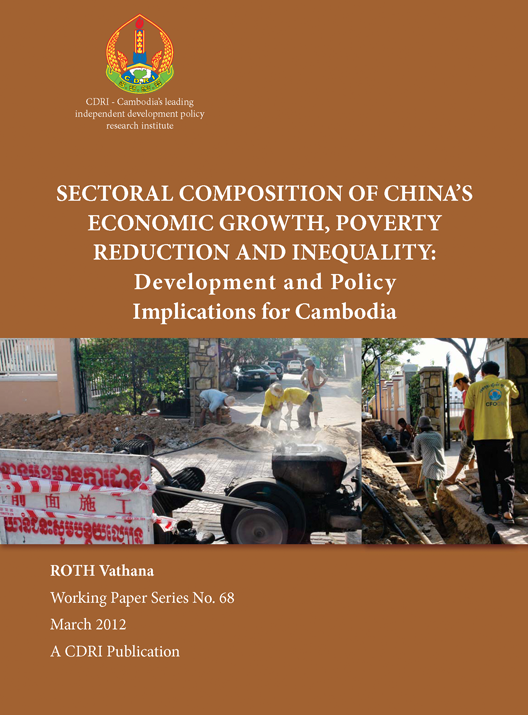
Sectoral Composition of China's Economic Growth, Poverty Reduction and Inequality: Development and Policy Implication for Cambodia
Although country contextual differences and pre-conditions must be carefully considered when attempting to replicate economic growth and poverty reduction models, Cambodia could consider experiences of some Asian countries like China, India, South Korea, Thailand and Vietnam to further improve its poverty reduction strategies and implementation...
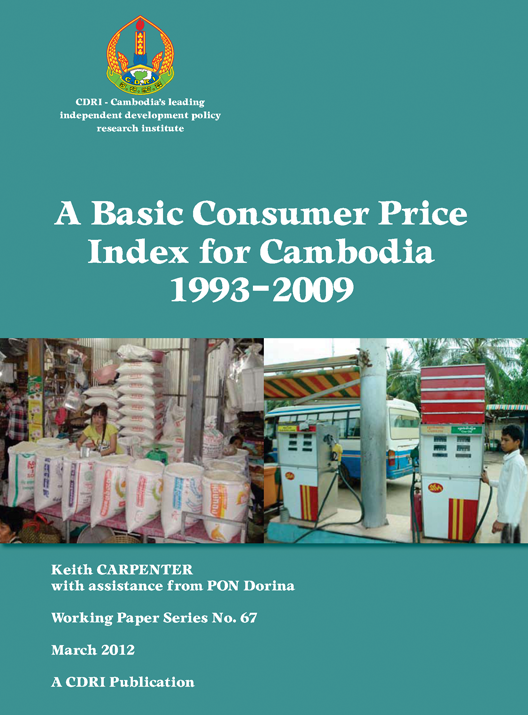
A Basic Consumer Price Index for Cambodia 1993–2009
This paper calculates basic consumer price indices for Cambodia for 1993-2009, using data gathered in provincial markets, using the Phnom Penh Consumer Price Index base periods of 1994, 2000 and 2006 of the Cambodian National Institute of Statistics (NIS). The key output of the paper is a National Basic Consumer Price Index for Cambodia.The pap...
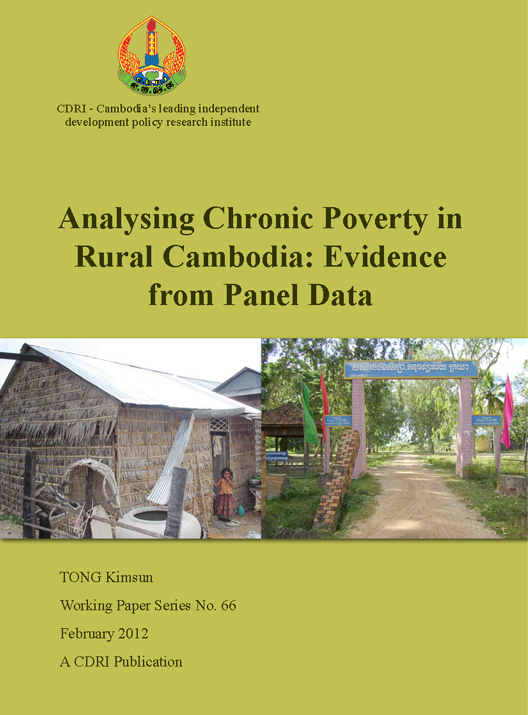
Analysing Chronic Poverty in Rural Cambodia: Evidence from Panel Data
This paper uses four years of panel data on 793 households collected during 2001–11 to measure chronic poverty in rural Cambodia and to identify its key determinants. A household wealth index—a proxy for long-term welfare—constructed by polychoric principal component analysis is used as welfare indicator. Both ordered logistic and multinomial l...
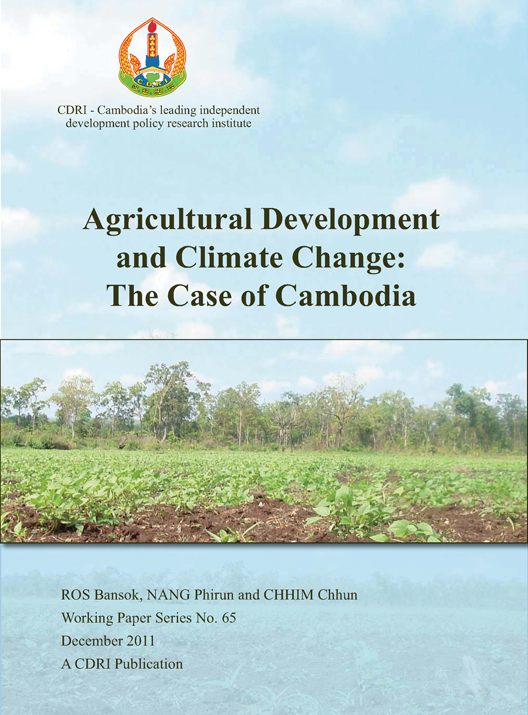
Agricultural Development and Climate Change: The Case of Cambodia
Cambodia’s economy is largely based on the agricultural sector and this sector is the main water user in Cambodia (Wokker et al. 2011a: 1-3). Several studies acknowledge that wet season rice farming is crucially important for livelihoods. With such farming being historically dependent on rainfall, the majority of lowland farmers grow just one crop...
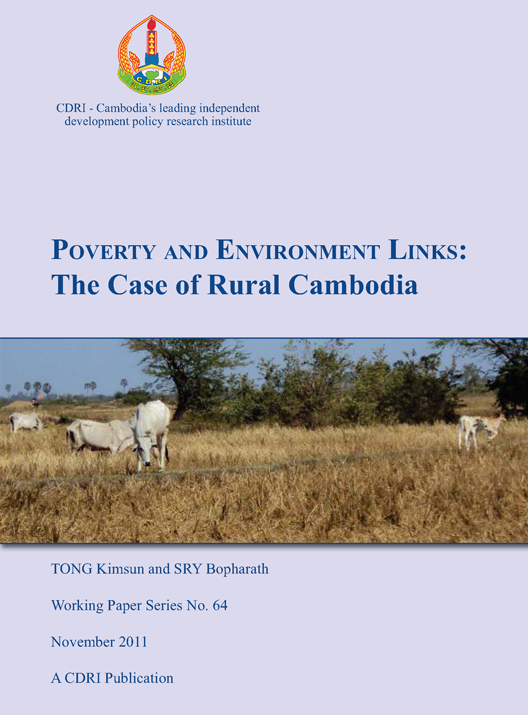
Poverty and Environment Links: The Case of Rural Cambodia
Environment and poverty nexus is still a polemical issue. Some schools of thought claim that it is poverty that has the major effect on the environment, while another perspective suggests that the environment has more impact on the poor than vice-versa because the poor have no power to exploit the environment. In the context of Cambodia, there is a...
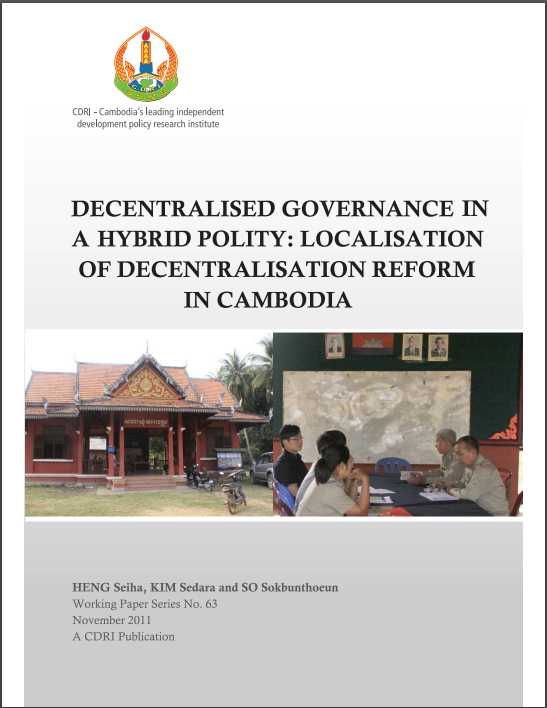
Decentralised Governance in a Hybrid Policy: Localisation of Decentralisation Reform in Cambodia
This paper reviews the progress of the decentralisation and deconcentration (D&D) reform in Cambodia. It revisits the conflicting positive and negative views on the achievements of the reform in the literature. The goal of the reform is twofold: promotion of local democracy and improvement of local service delivery. Both of these goals are theo...
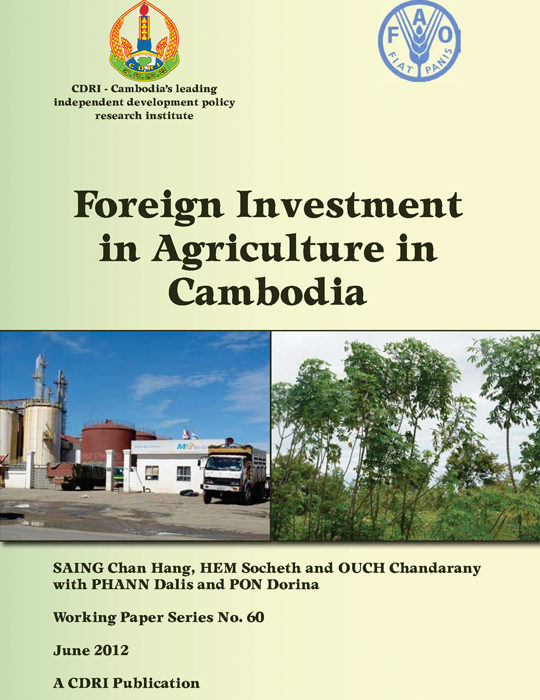
Foreign Investment in Agriculture in Cambodia
The noticeable rise in foreign direct investment (FDI) in agricultural land in developing countries in Africa, South and Central Asia and Latin America in recent years has sparked concerns among civil society groups and international organisations as to the potential impacts on poor local communities’ access to resources. Growing interest from...
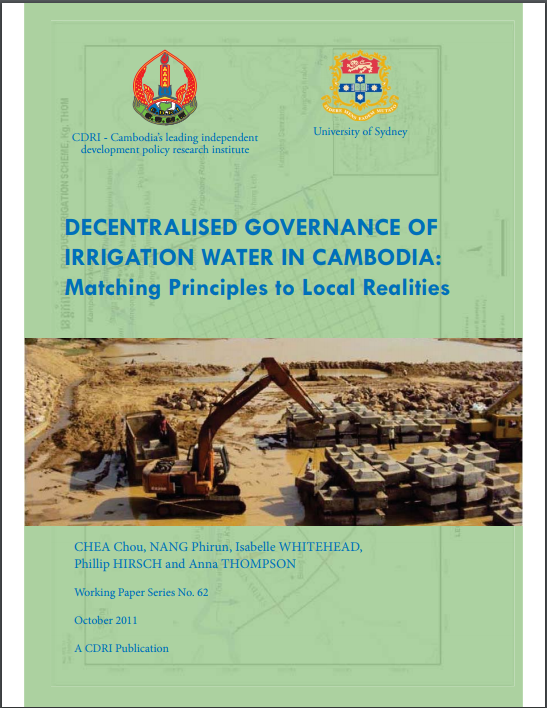
Decentralised Governance of Irrigation Water in Cambodia: Matching Principle to Local Realities
Cambodia is currently embarked on a significant programme of irrigation development. The technical design of irrigation projects has generally improved, but there remain a number of challenges in the governance of irrigation that inhibit the schemes from working effectively, equitably and sustainably. This study investigates the extent to which the...
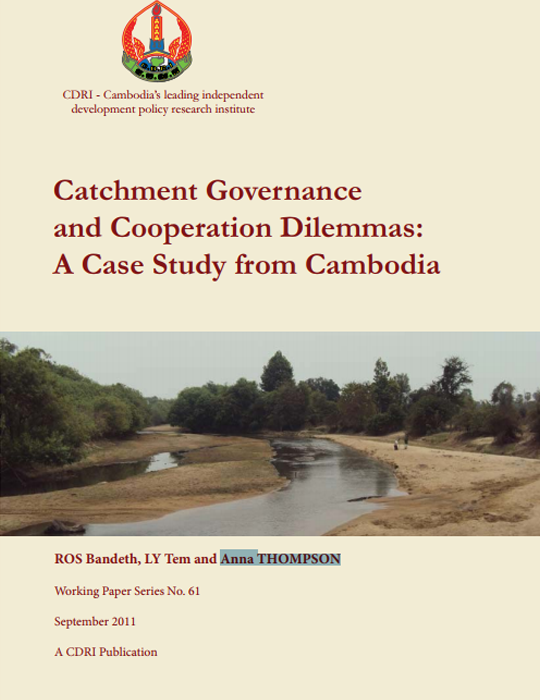
Catchment Governance and Cooperation Dilemmas: A Case Study from Cambodia
Integrated Catchment Management (ICM) is a recent ideal approach to be introduced into the Cambodian national strategy on water management to ensure better planning and management of water and other related resources in a catchment. A new multi-level catchment body or a committee is soon to be established as a result. Integral to ICM is coopera...
